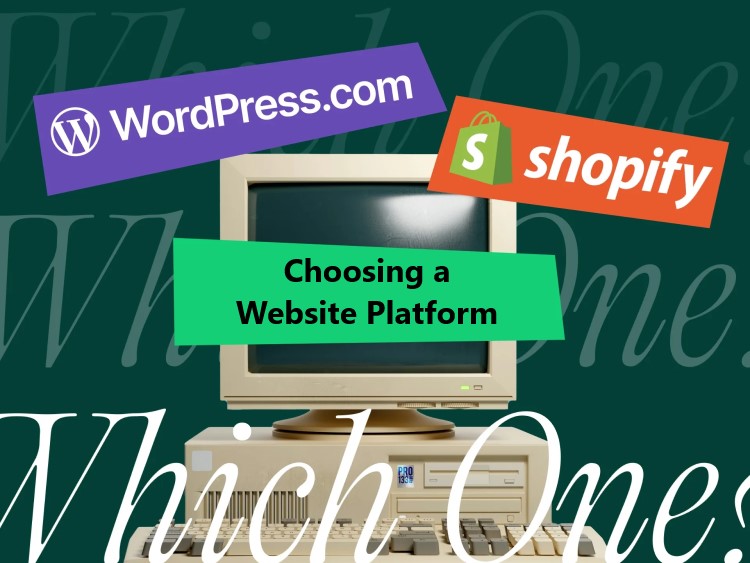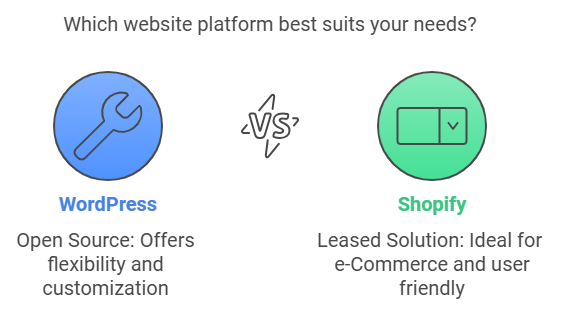
Each platform offers unique strengths, so comparing them based on your priorities is essential. Whether you need e-commerce tools, blogging capabilities, or a professional portfolio, there is a platform designed to fit your requirements. Balancing your budget with the features you need ensures you choose a platform that works for you.
By considering factors like integrations and support, you can create a site that supports your business now and in the future. A thoughtful approach to choosing a website platform sets the foundation for a successful online presence. With the right tools, your website can help you reach your goals effectively.
Understanding Your Website Needs and Goals
Before choosing a website platform, it is important to understand your specific website needs and goals. Start by defining the purpose of your website. Whether it is for e-commerce, blogging, or a portfolio, your website’s function will guide many decisions. Knowing what you want to achieve helps you focus on platforms that align with your goals.
Consider the features you need to meet your objectives. For an online store, prioritize platforms with robust e-commerce tools like inventory management and payment gateways. If your focus is content, look for easy-to-use blogging features and media integration. Thinking through these requirements ensures you select a platform that supports your goals from the start.
It is also helpful to think about your target audience. Knowing how they interact with websites can influence your design and feature choices. For example, if your audience prefers mobile browsing, prioritize platforms that offer responsive design. By aligning your platform with your audience’s expectations, you create a better user experience.
Choosing a website platform becomes easier when you are clear about what you need. With defined goals and a list of features, you can narrow your options. This preparation saves time and ensures your platform supports your business as it grows.
Comparing Popular Website Platforms
When comparing popular website platforms, it helps to understand their strengths and weaknesses. WordPress stands out for its flexibility and customization options. It supports a wide range of plugins, making it suitable for complex websites. However, its advanced features can come with a learning curve, especially for beginners.
Wix is known for its ease of use and drag-and-drop editor. It’s a great choice if you want a simple setup process. While it offers creative freedom, it can be less flexible for scaling or adding advanced features. This makes it ideal for small businesses or personal projects.
Shopify specializes in e-commerce, providing tools like inventory management, payment integrations, and customer support options. It’s an excellent choice if your primary focus is selling products online. However, its features may be excessive for non-commerce websites, and it has monthly fees that can add up.
Squarespace is another popular option, offering sleek design templates and built-in features for blogging or online stores. It’s great for visually appealing websites but offers fewer customization options than WordPress. If design simplicity is your priority, Squarespace can meet your needs effectively.
Choosing a website platform depends on your goals and technical experience. Understanding what each platform offers helps you pick the right one for your business. Balancing ease of use with flexibility ensures you have a platform that grows with your needs.
Assessing Customization and Scalability
When choosing a website platform, consider how well it supports customization and scalability. Customization lets you create a site that matches your brand. Platforms like WordPress offer extensive flexibility with themes and plugins. This allows you to adjust design elements and add features as needed. However, managing a highly customizable platform may require technical skills or professional help.
Scalability is also important if you expect your business to grow. Platforms like Shopify handle growth well by offering plans that support larger product catalogs and higher traffic. These features allow you to expand without switching platforms. On the other hand, simpler platforms like Wix may become limiting as your needs evolve.
Balancing customization and scalability is key to long-term success. A platform that offers both ensures your website remains effective as your goals change. Evaluating these factors helps you choose a solution that grows with your business and supports your vision. Making the right choice now saves you time and effort in the future.
Considering Ease of Use and Support
Ease of use is an important factor when choosing a website platform. A user-friendly platform saves you time and reduces frustration. Platforms like Wix and Squarespace are designed for beginners, offering drag-and-drop tools and simple interfaces. These options let you build a functional website quickly without technical expertise.
Customer support also plays a significant role, especially when you encounter challenges. Platforms like Shopify provide 24/7 support, ensuring you can resolve issues promptly. Others, like WordPress, rely on community forums and third-party resources for assistance. Knowing the level of support available helps you prepare for potential problems.
Balancing ease of use and support ensures you can manage your website confidently. If you value independence, choose a platform with a straightforward setup and robust tutorials. For ongoing guidance, select a platform with accessible and responsive customer support. Considering these factors makes running your website smoother and more efficient as your business grows.
Budget and Pricing Options
When choosing a website platform, budget and pricing options are important factors to consider. Different platforms offer various pricing structures to fit different needs. Some, like Wix and Squarespace, have flat monthly subscription fees that include hosting and basic features. Others, like WordPress, require separate hosting and domain costs, which can add flexibility but increase complexity.
Transaction fees are another cost to keep in mind, especially for e-commerce businesses. Platforms like Shopify charge a percentage per transaction unless you use their payment system. These fees can add up over time, affecting your bottom line. Understanding these costs allows you to choose a platform that aligns with your revenue goals.
Add-ons and integrations can also impact your budget. While many platforms include basic features, advanced tools like SEO plugins or email marketing systems may cost extra. It’s important to list the features you need and determine if they fit within your budget. Comparing total costs helps you avoid surprises later.
By evaluating pricing and features together, you can make an informed decision. Choosing a website platform with transparent pricing and flexible options ensures you stay within budget while meeting your needs. This careful planning helps you build a cost-effective and scalable website.
Integrating Tools and Features for Your Business
Integrating the right tools and features is a key consideration when choosing a website platform for your business. E-commerce integrations, such as Shopify’s built-in tools, allow you to manage inventory, process payments, and track orders. Platforms like WooCommerce, designed for WordPress, offer flexibility but may require additional plugins and setup.
SEO tools are also important for driving organic traffic to your site. Many platforms include basic SEO features, like meta tags and sitemaps. WordPress excels in this area, with numerous plugins that provide advanced analytics and optimization options. These tools can help your site rank higher in search results and attract more visitors.
Marketing integrations, such as email campaign tools, enhance how you reach and engage with your audience. Platforms like Squarespace and Wix simplify email marketing with built-in templates and analytics. For more robust options, WordPress allows you to connect third-party tools like Mailchimp or HubSpot seamlessly. These integrations enable you to track engagement and refine your marketing strategies.
Choosing a website platform that supports your business tools helps streamline operations and improve efficiency. By selecting a platform with strong integration capabilities, you can build a site that supports your goals while remaining flexible for future growth. Understanding these features ensures your platform choice aligns with your business needs.
Conclusion
Choosing a website platform is a critical step in building a site that meets your business needs and goals. By understanding your requirements and evaluating each platform’s features, you can make an informed decision. Factors like customization, scalability, and ease of use should align with your objectives and long-term plans.
The right platform also supports integrations for e-commerce, SEO, and marketing tools, allowing you to streamline your operations. Balancing costs and features ensures your choice fits within your budget while offering room for growth. Taking the time to assess your options now can save you challenges later.
With careful planning, choosing a website platform becomes a manageable and rewarding process. A well-suited platform provides the tools and support needed to grow your business successfully. By focusing on what matters most, you can create a site that supports your goals and delivers results.



